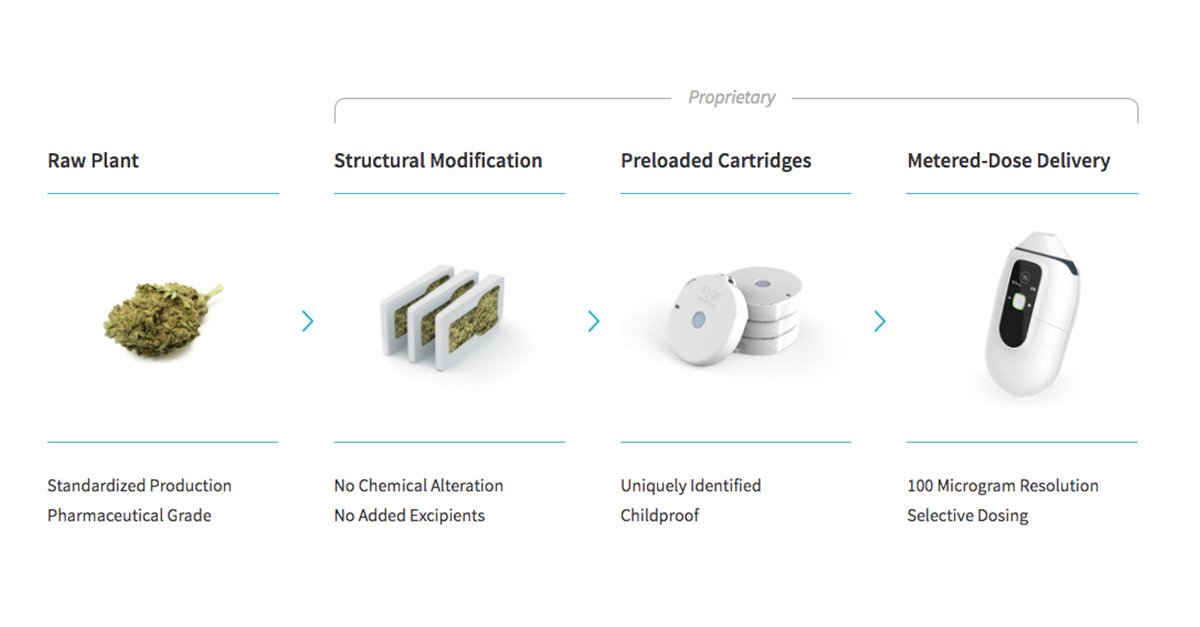Israel is already leading the world in medical marijuana research and treatment — now they’re taking it one step further.
The Tel Aviv-based company Syqe Medical has partnered with Teva Pharmaceuticals to bring a 3D-printed cannabis inhaler to the global market. The inhaler is particularly advanced in its ability provide a patient with exact doses of cannabinoids and terpenes, while the cannabis vapor itself takes effect in the body three to five minutes after inhalation. This gives it an advantage over oils or edibles that take hours to absorb, and over joints or most vape pens that don’t provide a controlled method of THC or CBD dose ingestion.
The inhaler has built-in thermal controllers and a lung monitoring system that automatically adjusts airflow through the device to accommodate the patient’s inhalation pace. With this technology, the patient can be sure they are receiving exactly 100 micrograms of the substance inside the inhaler. Instead of using oil like other vaporizers do, the device uses a cartridge containing preloaded VaporChips, or dosage units infused with cannabis that are no bigger than a computer chip. “We are able to deliver a plant with the same rigor, safety, and precision as a [traditional] pharmaceutical,” Perry Davidson, CEO of Syqe, told The Jerusalem Post.

Not only exacting, the inhaler is “smart,” meaning that it sends the patient’s data back to Syqe after every time they use it, which helps the company further research how well the product works.
So far, a few hundred of Israel’s 30,000 medical cannabis patients are using the inhaler. The company will also plan a trial with the U.S. Food and Drug Administration next year, which could make the inhaler available in cannabis legal states.
And so far, Syqe Medical is the only cannabis company using a 3D printer to create medical products. In order for the inhaler to be developed, the Israel Innovation Authority gave $1 million in funding to Syqe. The company was also given their $50,000 3D printer for free as a beta product. Israel’s culture of innovation, along with the country’s financial support provided to seed investors, helps with research and development, said Davidson. “Now investors are knocking out our doors every day.”





